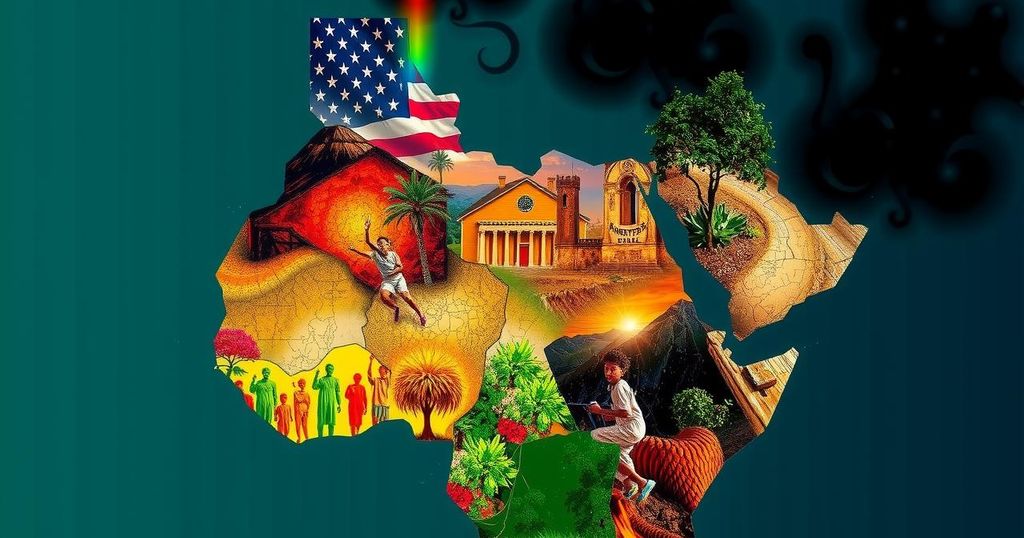Alarm Raised on Climate Change Impacting Children in Africa
A recent UNICEF report reveals that children in sub-Saharan Africa are at heightened risk from climate change impacts, yet receive less than 3% of climate financing. As extreme climate hazards such as heat waves and floods increase, children’s access to essential services is compromised. The report calls for immediate action to prioritize the needs of children in climate strategies, as over 40 million have been affected by educational disruptions this year due to extreme temperatures.
Recent assessments indicate that children in sub-Saharan Africa are facing substantial risks from climate change, yet they remain largely overlooked in global climate financing initiatives. As highlighted in the UNICEF report, “The State of the World’s Children 2024: The Future of Childhood in a Changing World,” children lack access to vital resources such as climate-resilient shelters, healthcare, education, clean water, and cooling systems. The report emphasizes that nearly all assessed nations in Africa have children classified as at high or extremely high risk due to climate hazards. The consequences of extreme weather events and heightened temperatures are projected to escalate, especially towards the 2050s. Remarkably, UNICEF reports that less than 3 percent of global climate funding addresses the unique needs of children.
During the COP29 climate conference, UNICEF highlighted that over 40 million children in Africa and parts of Asia experienced disruptions in their education owing to extreme heat, underscoring the urgent need for actionable commitments from world leaders. UNICEF’s Executive Director, Catherine Russell, urged for immediate and substantial actions to mitigate climate impacts, asserting that current decisions will heavily influence the future children’s environment. Furthermore, a collective call for educational reforms from children across southern Africa seeks to ensure that schooling remains relevant in overcoming modern challenges posed by climate change.
The alarming projections regarding the effects of climate change on children in sub-Saharan Africa stem from a combination of environmental vulnerabilities, socioeconomic factors, and inadequate infrastructure. Limited access to essential services greatly exacerbates the challenges these children face, particularly in the context of extreme climate events such as heatwaves and floods. UNICEF’s recent findings draw attention to the gap in climate financing directed toward children, highlighting a severe lack of resources aimed at protecting and empowering this vulnerable group in the face of ongoing environmental degradation and inequity.
In conclusion, the impact of climate change on children in sub-Saharan Africa represents a critical issue that requires immediate and dedicated attention from global leaders and stakeholders alike. As emphasized by UNICEF, the stark reality of their plight, coupled with insufficient funding and resources, necessitates transformative action to safeguard their future. The call for educational reforms and the urgent need for child-specific climate interventions underline the vulnerability of these young populations and the collective responsibility to ensure their well-being in a changing world.
Original Source: global.chinadaily.com.cn




Post Comment